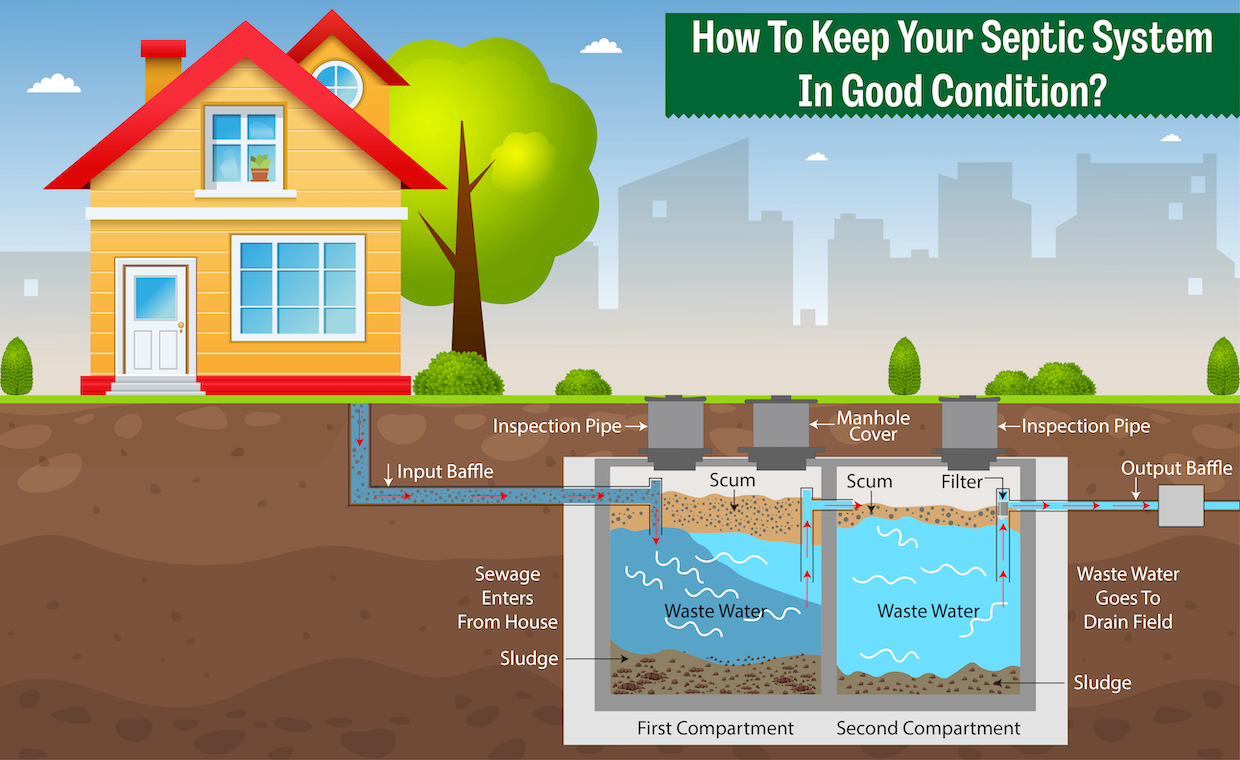Have you ever wondered what you should avoid doing with your septic tank to prevent costly and messy problems? In this article, we will highlight the key actions and behaviors that you should steer clear of when it comes to your septic tank. By understanding what not to do, you can ensure the longevity and efficiency of your septic system, saving you both time and money in the long run. So, let’s dive in and explore the crucial do’s and don’ts when it comes to your septic tank!
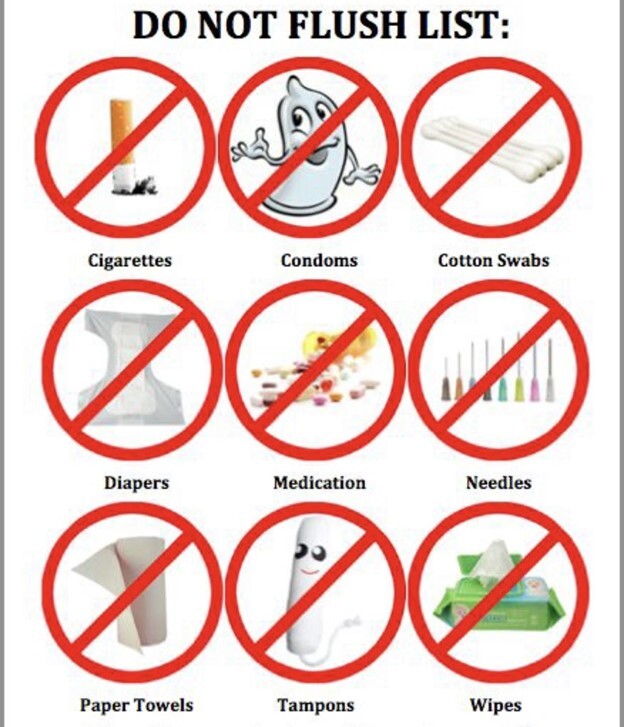
Flushing Non-Biodegradable Items
Disposable Diapers
Flushing disposable diapers down the toilet may seem like a convenient way to get rid of them, but it’s a big no-no when it comes to your septic tank. Disposable diapers are made from materials that do not break down easily, leading to clogged pipes and a strained septic system. Instead of flushing them, it’s best to dispose of diapers in the trash, preferably in a sealed bag to prevent any unpleasant odors.
Sanitary Napkins and Tampons
Similar to disposable diapers, sanitary napkins and tampons should never be flushed down the toilet. These items are not designed to disintegrate in water, and when flushed, they can cause blockages in your septic system. Proper disposal of sanitary napkins and tampons involves wrapping them in toilet paper or using designated disposal bags and tossing them in the trash.
Condoms
Though it may seem counterintuitive, throwing condoms into the toilet is not a safe bet for your septic tank. Condoms are made of latex or other non-biodegradable materials, making them a potential hazard to your septic system. Instead, wrap used condoms in tissue or place them in a sealed bag and discard them in the trash to prevent any issues with your septic tank.
Cigarette Butts
While you may think that cigarette butts are small enough to be flushed down the toilet without causing any harm, this is not the case. Cigarette butts do not break down easily and can clog plumbing pipes, leading to costly repairs. To properly dispose of cigarette butts, it’s best to extinguish them completely and dispose of them in a designated ashtray or trash bin.
Pouring Toxic Substances
Household Cleaners
When it comes to your septic tank, it’s important to be mindful of the household cleaners you use. Harsh chemicals found in many household cleaners can be detrimental to the bacteria that help break down waste in your septic system. To maintain a healthy balance, opt for environmentally friendly or septic-safe cleaning products that are specifically designed for septic systems.
Paints and Solvents
Flushing or pouring paint, paint thinners, or solvents down the drain is a recipe for disaster when it comes to your septic tank. These substances can disrupt the natural processes within the tank and even contaminate the groundwater. Proper disposal methods for these items include bringing them to a local hazardous waste collection site or seeking guidance from your local waste management facility.
Pesticides and Herbicides
While pesticides and herbicides may be effective in controlling pests and maintaining your garden, they can have adverse effects on your septic system. These chemicals can kill the beneficial bacteria responsible for breaking down waste, leading to imbalances and potential system failures. It’s important to follow manufacturer instructions carefully and avoid excessive use near septic systems to protect their functionality.
Motor Oil and Grease
Pouring motor oil or grease down the drain may seem like a convenient way to dispose of these substances, but it can wreak havoc on your septic system. Motor oil does not break down easily and can contaminate the soil and groundwater. Grease, on the other hand, can solidify in pipes, leading to clogs and blockages. Instead, recycle used motor oil, and dispose of grease in the trash or consider recycling options.
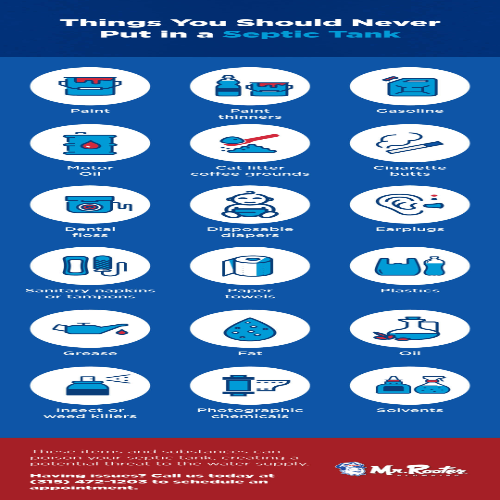
Using Excessive Water
Taking Long Showers
While a long, hot shower may be a relaxing way to unwind, it can also put a strain on your septic system. Excessive water usage can overload the system, making it difficult for the bacteria to break down waste effectively. To prevent any issues, consider shortening your showers or installing water-efficient showerheads to reduce water consumption.
Using Water-Intensive Appliances
Certain appliances, such as washing machines and dishwashers, use a significant amount of water. When using these appliances, it’s essential to be mindful of your septic system’s capacity. Running multiple loads of laundry or using the dishwasher excessively within a short period can overload the system. Spacing out the usage of water-intensive appliances and using them in moderation can help prevent any strain on the septic system.
Running Faucets Unnecessarily
Leaving faucets running unnecessarily can lead to excessive water usage, which is not only wasteful but also detrimental to your septic system. Every drop of water that enters the septic tank needs to be processed and treated. By being mindful of unnecessary water usage, such as letting the faucet run while brushing your teeth or washing dishes, you can help preserve the health and longevity of your septic system.
Ignoring Proper Maintenance
Skipping Regular Pumping
Regular pumping is crucial for maintaining the optimal functionality of your septic tank. Over time, solid waste accumulates and forms a layer of sludge at the bottom of the tank. If this sludge is not removed through regular pumping, it can lead to clogs, backup issues, and even damage to the drainfield. It’s important to follow the recommended pumping schedule based on the size of your tank and the number of occupants in your household.
Neglecting Maintenance Inspections
Just as regular pumping is essential, routine maintenance inspections are also crucial for the overall health of your septic system. Ignoring these inspections can lead to undetected issues or potential failures. Professional septic system inspections can identify any problems early on, allowing for prompt repairs and preventive measures. Make sure to schedule regular inspections with a qualified septic system professional.
Disregarding Drainfield Care
The drainfield plays a crucial role in the proper functioning of your septic system. It helps filter and disperse the treated wastewater into the surrounding soil. Neglecting drainfield care, such as allowing heavy vehicles or machinery to drive over it or compacting the soil, can compromise its effectiveness. It’s important to be mindful of what activities take place on or near your drainfield and to avoid any practices that may result in damage.
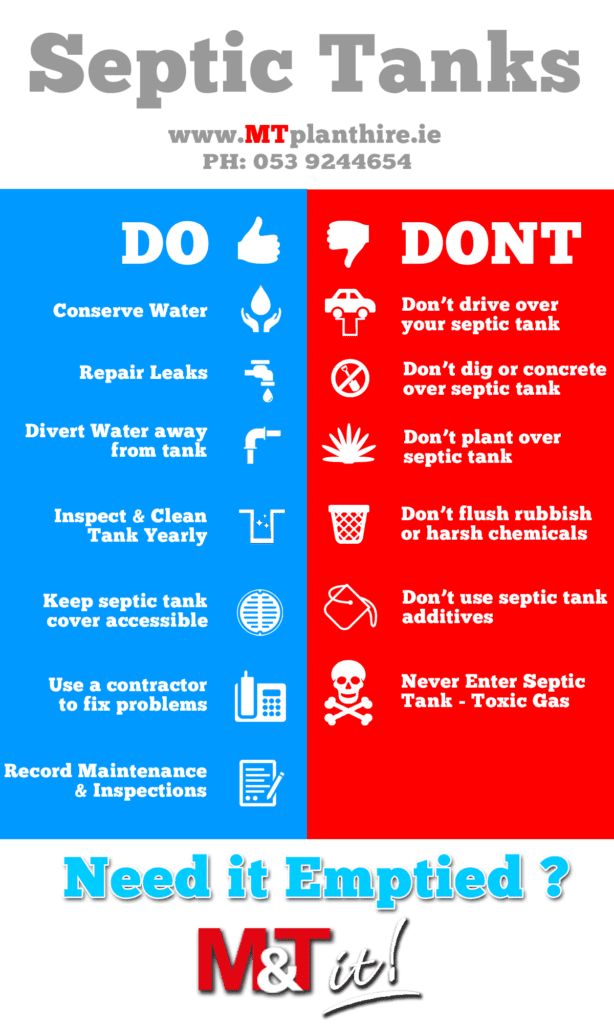
Ignoring Warning Signs
Pooling Water in Yard
Pooling water in your yard, especially near the septic tank or drainfield, is a clear indication of a potential problem with your septic system. This pooling water could be a result of a clogged drainfield or an overloaded septic tank. Ignoring this warning sign can lead to further complications and even system failures. If you notice pooling water, it’s vital to have your septic system inspected and repaired by a professional.
Slow Draining Fixtures
If you experience slow draining in multiple fixtures, such as sinks, showers, or toilets, it may be a sign of a septic system issue. Slow drainage can indicate a blockage or a failing drainfield. Ignoring this sign can lead to backups, foul odors, and potential sewage leaks. If you notice slow draining fixtures, it’s best to have your septic system inspected to identify and address the underlying problem.
Foul Odors
Foul odors emanating from your drains, toilets, or yard are not something to ignore. These odors can indicate a variety of issues with your septic system, from clogs to leaks. Ignoring these odors can result in worsening smells and potential health hazards. It’s crucial to address foul odors promptly by contacting a professional septic system service provider to assess and resolve the problem.
Gurgling Sounds
Gurgling sounds coming from drains or toilets when water is being used can be indicative of a septic system issue. These sounds occur when air is trapped in the plumbing system due to a clog or a failing septic system. Ignoring these sounds can lead to further clogs, backups, and potential system failures. If you hear gurgling sounds, it’s important to investigate the cause and seek professional assistance if needed.
Disposing of Chemicals
Medications
Flushing medications down the toilet or pouring them down the drain can have detrimental effects on both your septic system and the environment. Medications can contaminate the groundwater and disrupt the natural balance of the septic tank. Instead, contact your local pharmacy or healthcare provider for information on proper disposal methods for expired or unused medications.
Chemical Drain Cleaners
Chemical drain cleaners are known for their harsh ingredients that can damage pipes and disrupt the balance of beneficial bacteria within your septic tank. Using these cleaners frequently can weaken your septic system’s performance and potentially lead to failures. Instead, consider using alternative, septic-safe methods to address clogs and maintain the health of your septic system.
Fertilizers and Herbicides
While fertilizers and herbicides may be necessary for maintaining a vibrant lawn or garden, it’s important to use them sparingly and with caution. Excessive use of these chemicals can disrupt the bacterial balance within your septic tank, leading to imbalances and potential system failures. Be mindful of the proximity of your septic system to the areas where you use these chemicals and follow the recommended application guidelines.
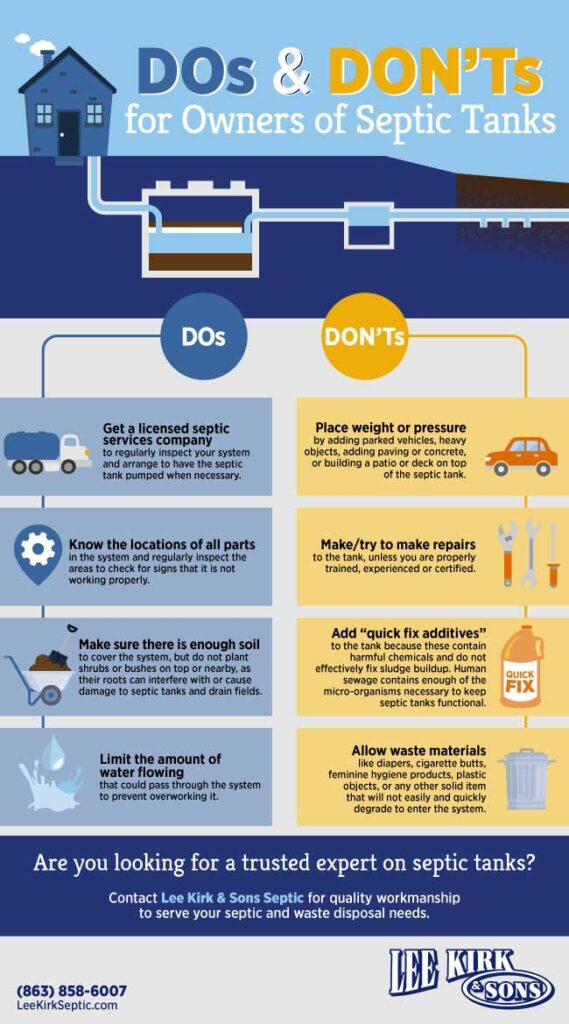
Using Antibacterial Soaps
Impact on Beneficial Bacteria
Antibacterial soaps contain ingredients that are designed to kill bacteria, both harmful and beneficial. When these soaps are used excessively or consistently, they can disrupt the balance of bacteria within your septic tank. The beneficial bacteria in your tank are responsible for breaking down waste, and killing them off can lead to an inefficient septic system. Opt for regular, non-antibacterial soaps to protect the bacterial balance in your septic tank.
Increased Resistance to Antibiotics
The widespread use of antibacterial soaps has contributed to the growing issue of antibiotic resistance. Overuse of antibacterial products, including soaps, can lead to the development of bacteria that are resistant to antibiotics, making treatment of infections more challenging. By choosing regular soaps instead of antibacterial ones, you can help mitigate the risk of antibiotic resistance and protect both your health and the environment.
Parking or Driving Over the Septic System
Compacting the Soil
Parking vehicles or driving over your septic system can lead to soil compaction, which can have negative consequences for the functionality of your system. Compacted soil restricts the flow of wastewater from the septic tank, leading to potential backups and drainfield issues. It’s important to avoid parking or driving over your septic system to preserve the integrity of the soil and maintain proper drainage.
Cracking Pipes or Tanks
The weight of vehicles or heavy machinery parked or driven over the septic system can cause structural damage, leading to cracked pipes or tanks. These cracks can result in leaks, contamination of the soil and groundwater, and costly repairs. To prevent such damage, it’s crucial to be aware of the location of your septic system and take measures to ensure it remains free from any vehicular or heavy equipment traffic.
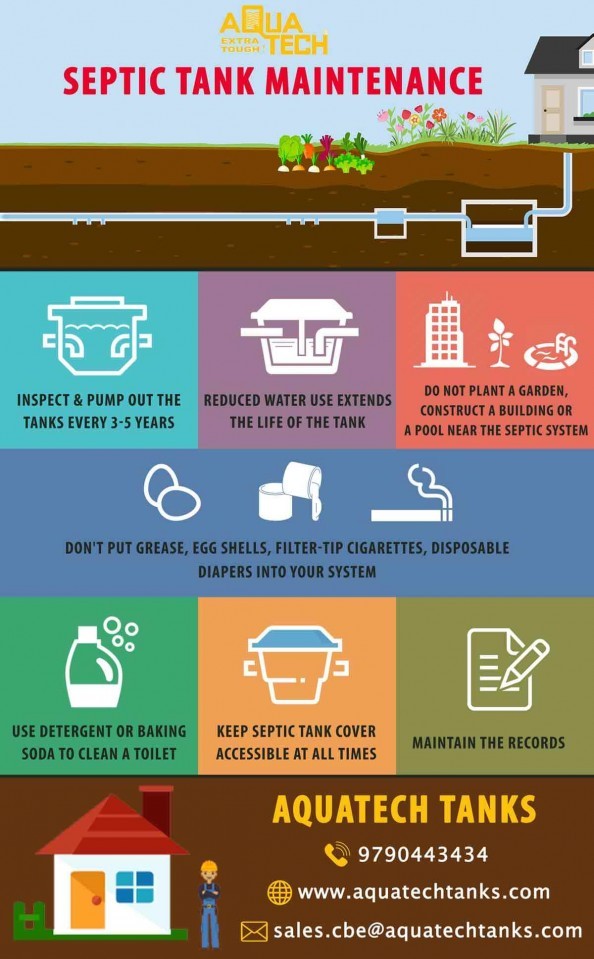
Planting Trees or Shrubs Near the System
Invasive Roots Damaging Pipes
When planting trees or shrubs near your septic system, it’s important to choose the right species and be mindful of the root systems. Invasive tree roots can penetrate pipes and cause damage, leading to leaks and clogs. Before planting, consult with a professional arborist or landscaper to ensure that the vegetation you choose will not pose a threat to your septic system.
Interference with Drainfield
The drainfield requires proper airflow and adequate space for the wastewater to be absorbed into the soil. Planting trees or shrubs too close to the drainfield can interfere with these essential processes. The roots can penetrate the drainfield pipes, leading to clogs and reduced effectiveness. It’s crucial to maintain the recommended distance between vegetation and the drainfield to ensure its optimal functionality.
Installing a Garbage Disposal Unit
Increased Load on the System
Garbage disposal units are convenient for disposing of food waste, but they can put a strain on your septic system. The additional solid waste can overwhelm the system’s capacity, leading to clogs, backups, and potential failures. If you have a septic system, it’s best to minimize the use of garbage disposals and explore alternative methods, such as composting, to dispose of food waste.
Clogged Pipes
Garbage disposal units can send large amounts of food waste into the septic system, potentially causing clogs in the pipes. These clogs can lead to backups, foul odors, and costly repairs. To prevent these issues, it’s advisable to be cautious with what goes down the garbage disposal and to regularly clean and maintain it to ensure it functions properly.
In conclusion, taking care of your septic tank involves adopting responsible practices and avoiding certain actions that can negatively impact its functionality. By following the guidelines outlined above, you can help protect your septic system, prevent costly repairs, and ensure the health of both your home and the environment. Remember, proper maintenance and careful consideration of what goes into your septic system are key to its long-lasting performance.
